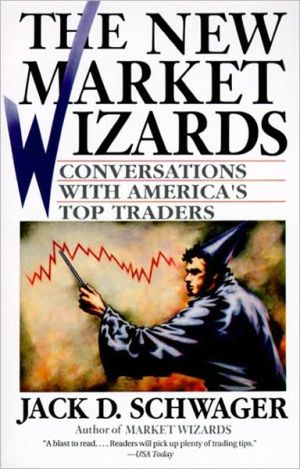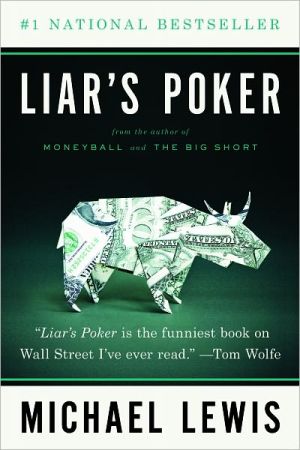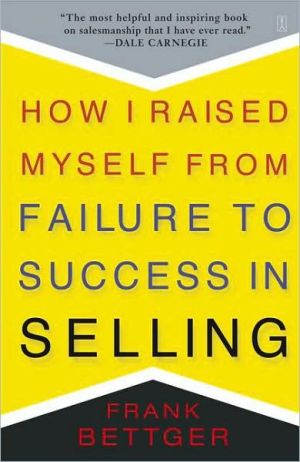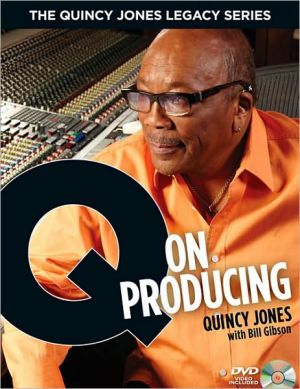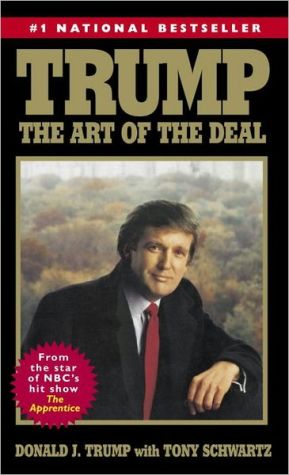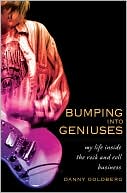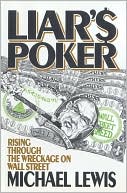New Market Wizards: Conversations with America's Top Traders
In The New Market Wizards, successful traders relate the financial strategies that have rocketed them to success. Asking questions that readers with an interest or involvement in the financial markets would love to pose to the financial superstars, Jack D. Schwager encourages these financial wizards to share their insights. Entertaining, informative, and invaluable, The New Market Wizards is destined to become another Schwager classic.\ \ \ In this sequel to the...
Search in google:
In The New Market Wizards, successful traders relate the financial strategies that have rocketed them to success. Asking questions that readers with an interest or involvement in the financial markets would love to pose to the financial superstars, Jack D. Schwager encourages these financial wizards to share their insights. Entertaining, informative, and invaluable, The New Market Wizards is destined to become another Schwager classic. Ed Seykota Jack Schwager's deep knowledge of the markets and his extensive network of personal contacts throughout the industry have set him apart as the definitive market chronicler of our age.
Trading Perspectives\ Misadventures in Trading\ \ On the lecture tour following the completion of this book's predecessor, Market Wizards, certain questions came up with reliable frequency. One common question was: "Has your own trading improved dramatically now that you've just finished interviewing some of the world's best traders?" Although I had the advantage of having plenty of room for dramatic improvement in my trading, my response was a bit of a cop-out. "Well," I would answer, "I don't know. You see, at the moment, I'm not trading."\ While it may seem a bit heretical for the author of Market Wizards not to be trading, there was a perfectly good reason for my inaction. One of the cardinal rules about trading is (or should be): Don't trade when you can't afford to lose. In fact, there are few more certain ways of guaranteeing that you will lose than by trading money you can't afford to lose. If your trading capital is too important, you will be doomed to a number of fatal errors. You will miss out on some of the best trading opportunities because these are often the most risky. You will jump out of perfectly good positions prematurely on the first sign of adverse price movement only to then see the market go in the anticipated direction. You will be too quick to take the first bit of profit because of concern that the market will take it away from you. Ironically, overconcern about losing may even lead to staying with losing trades as fear triggers indecisiveness, much like a deer frozen in the glare of a car's headlights. In short, trading with "scared money" will lead to a host of negative emotions that will cloud decision makingand virtually guarantee failure.\ The completion of Market Wizards coincided with my having a house built. Perhaps somewhere out in this great country, there is someone who has actually built a house for what they thought it would cost. But I doubt it. When financing the building of a house, you find yourself repeatedly uttering that seemingly innocuous phrase, "Oh, it's only another $2,000." All those $2,000s add up, not to mention the much larger sums. One of our extravagances was an indoor swimming pool, and to help pay for this item I liquidated my commodity account--in the truest sense of the word. It was my sincerest intention not to resume trading until I felt I had adequate risk capital available, and an unending stream of improvements on the house kept pushing that date further into the future. In addition, working at a demanding full-time job and simultaneously writing a book is a draining experience. Trading requires energy, and I felt I needed time to recuperate without any additional strains. In short, I didn't want to trade.\ This was the situation one day when, in reviewing my charts in the afternoon, I found myself with the firm conviction that the British pound was about to collapse. In the previous two weeks, the pound had moved straight down without even a hint of a technical rebound. After this sharp break, in the most recent week, the pound had settled into a narrow, sideways pattern. In my experience, this type of combined price action often leads to another price decline. Markets will often do whatever confounds the most traders. In this type of situation, many traders who have been long realize they have been wrong and are reconciled to liquidating a bad position--not right away, of course, but on the first rebound. Other traders who have been waiting to go short realize that the train may have left without them. They too are waiting for any minor rebound as an opportunity to sell. The simple truth is that most traders cannot stand the thought of selling near a recent low, especially soon after a sharp break. Consequently, with everyone waiting to sell the first rally, the market never rallies.\ In any case, one look at the chart and I felt convinced this was one of those situations in which the market would never lift its head. Although my strong conviction tempted me to implement a short position, I also felt it was an inappropriate time to resume trading. I looked at my watch. There were exactly ten minutes left to the close. I procrastinated. The market closed.\ That night before leaving work, I felt I had made a mistake. If I was so sure the market was going down, I reasoned, I should have gone short, even if I didn't want to trade. So I walked over to the twenty-four-hour trading desk and placed an order to go short the British pound in the overnight market. The next morning I came in and the pound was down over 200 points on the opening. I placed a token amount of money into the account and entered a stop order to liquidate the trade if the market returned to my entry level. I rationalized that I was only trading with the market's money, and since my plan was to cease trading on a return to breakeven, I was not really violating my beliefs against trading with inadequate capital. Thus, I found myself trading once again, despite a desire not to do so.\ This particular trade provides a good illustration of one of the principles that emerged from my interviews for Market Wizards. Patience was an element that a number of the supertraders stressed as being critical to success. James Rogers said it perhaps most colorfully, "I just wait until there is money lying in the corner, and all I have to do is go over there and pick it up. I do nothing in the meantime." In essence, by not wanting to trade, I had inadvertently transformed myself into a master of patience. By forcing myself to wait until there was a trade that appeared so compelling that I could not stand the thought of not taking it, I had vastly improved the odds.\ During the next few months, I continued to trade and my equity steadily increased, as I seemed to be making mostly correct trading decisions. My account grew from $0 (not counting an initial $4,000 deposit that was quickly withdrawn once profits more than covered margin requirements) to over $25,000. It was at this juncture, while traveling on a business trip, that nearly all my positions turned sour simultaneously. I made some hasty decisions between meetings, virtually all of which proved wrong. Within about a week, I had lost about one-third of my gains. Normally, when I surrender a meaningful percentage of my profits, I put on the brakes, either trading only minimally or ceasing to trade altogether. Instinctively, I seemed to be following the same script on this occasion, as my positions were reduced to minimal levels.\ At this time, I received a call from my friend Harvey (not his real name). Harvey is a practitioner of Elliott Wave analysis (a complex theory that attempts to explain all market behavior as part of a grand structure of price waves).* Harvey often calls me for my market opinion and in the process can't resist telling me his. Although I have usually found it to be a mistake to listen to anyone else's opinions on specific trades, in my experience Harvey had made some very good calls. This time he caught my ear.\ "Listen, Jack," he said, "you have to sell the British pound!" At the time, the British pound had gone virtually straight up for four months, moving to a one-and-a-half-year high.\ "Actually," I replied, "my own projection suggests that we may be only a few cents away from a major top, but I would never sell into a runaway market like this. I'm going to wait until there are some signs of the market topping."\ "It will never happen," Harvey shot back. "This is the fifth of a fifth." (This is a reference to the wave structure of prices that will mean something to Elliotticians, as enthusiasts of this methodology are known. As for other readers, any attempt at an explanation is more likely to confuse than enlighten--take my word for it.) "This is the market's last gasp, it will probably just gap lower on Monday morning and never look back." (This conversation was taking place on a Friday afternoon with the pound near its highs for the week.) "I really feel sure about this one."\ I paused, thinking: I've just taken a hit in the markets. Harvey is usually pretty good in his analysis, and this time he seems particularly confident about his call. Maybe I'll coattail him on just this one trade, and if he's right, it will be an easy way for me to get back on a winning track.\ So I said (I still cringe at the recollection), "OK Harvey, I'll follow you on this trade. But I must tell you that from past experience I've found listening to other opinions disastrous. If I get in on your opinion, I'll have no basis for deciding when to get out of the trade. So understand that my plan is to follow you all the way. I'll get out when you get out, and you need to let me know when you change your opinion." Harvey readily agreed. I went short at the market about a half-hour before the close and then watched as prices continued to edge higher, with the pound closing near its high for the week.
Partial table of contents:TRADING PERSPECTIVES.Misadventures in Trading.Hussein Makes a Bad Trade.THE WORLD'S BIGGEST MARKET.Bill Lipschutz: The Sultan of Currencies.FUTURES--THE VARIETY-PACK MARKET.Randy McKay: Veteran Trader.The Silence of the Turtles.Al Weiss: The Human Chart Encyclopedia.FUND MANAGERS AND TIMERS.Gil Blake: The Master of Consistency.Victor Sperandeo: Markets Grow Old Too.MULTIPLE-MARKET PLAYERS.Tom Basso: Mr.Serenity.THE MONEY MACHINES.CRT: The Trading Machine.Mark Ritchie: God in the Pits.Blair Hull: Getting the Edge.THE PSYCHOLOGY OF TRADING.Zen and the Art of Trading.Charles Faulkner: The Mind of an Achiever.CLOSING BELL.A Personal Reflection.Appendix.Glossary.
\ Richard DennisJack Schwager simply writes the best books about trading I've ever read. These interviews always give me a lot to think about. If you like learning about traders and trading, you'll find that reading this book is time well spent.\ \ \ \ \ Ed SeykotaJack Schwager's deep knowledge of the markets and his extensive network of personal contacts throughout the industry have set him apart as the definitive market chronicler of our age.\ \ \ John TrainVery interesting indeed!\ \ \ \ \ Robert R. Prechter Jr.Successful trading demands longtime experience because it requires firsthand knowledge. If there is a shortcut to this requirement, however, it is in reading about the experiences of others. Jack Schwager's book provides that shortcut. If you find yourself sweating upon occasion as you read, then you're as close to the trading experience as you can get without actually doing it yourself.\ \ \ \ \ Wall Street JournalAre great traders born or do they acquire their kills on the way up?...The New Market Wizards provides some interesting insights.\ \ \ \ \ Industry FuturesShould be required reading for anyone who selects managers for institutional or even personal portfolios.\ \
